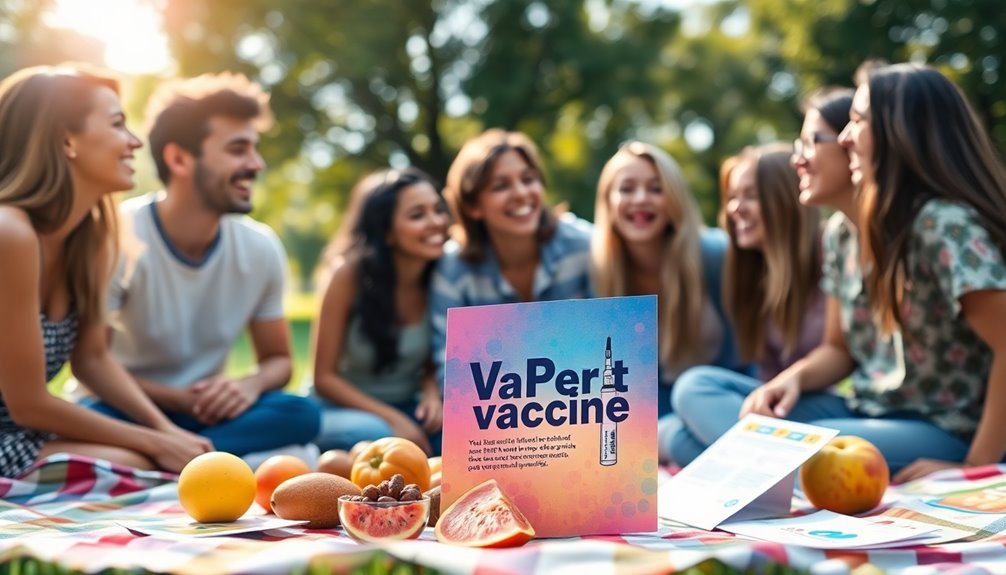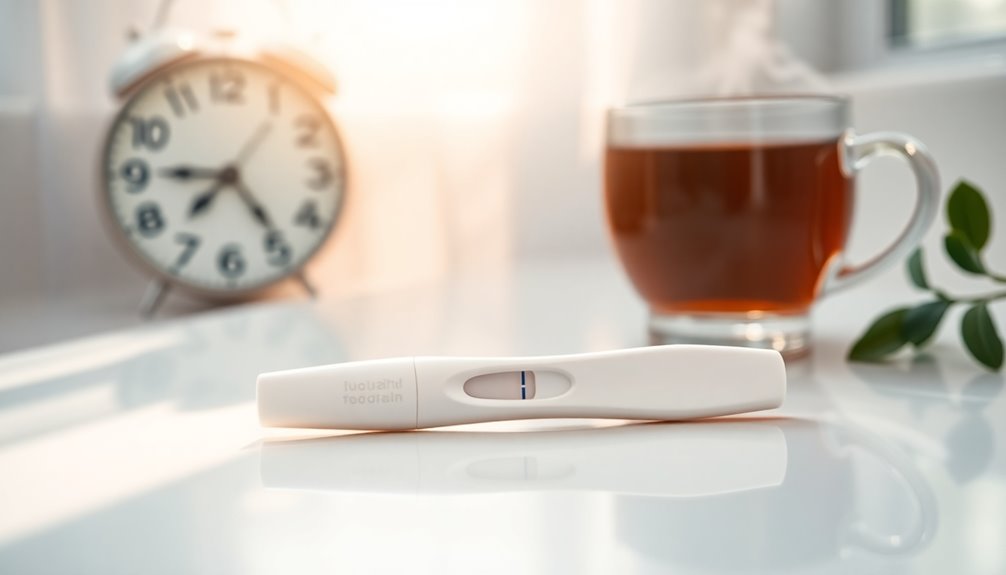Yes, you can get HPV without having sex. This virus spreads primarily through intimate skin-to-skin contact, which means you don't need to engage in sexual activity to contract it. Prolonged skin contact can facilitate transmission, and even shared surfaces, like public pools or showers, pose a risk, though it's lower. Asymptomatic carriers might unknowingly pass the virus on, and mothers can transmit HPV to their children during childbirth. It's important to be aware of these transmission routes. To learn more about prevention and health implications, keep exploring the topic.
Key Takeaways
- HPV can be transmitted through intimate skin-to-skin contact, not just sexual activity.
- Prolonged skin contact may facilitate the spread of certain HPV types.
- Asymptomatic carriers can unknowingly transmit HPV, increasing non-sexual transmission risk.
- HPV can potentially be contracted from shared surfaces, like public showers or pools, though the risk is lower.
- Infected mothers can pass HPV to their children during childbirth, highlighting non-sexual transmission routes.
Understanding HPV and Its Types

Human papillomavirus (HPV) is a complex virus that includes over 100 types, with around 40 that can infect the genital area.
These types are categorized into low-risk and high-risk strains. Low-risk types often cause genital warts, while high-risk types are linked to various cancers, such as cervical cancer.
HPV is primarily transmitted through intimate skin-to-skin contact, but it's important to know that non-sexual transmission can occur as well. You can even contract it from shared surfaces, like in public showers or pools, although this is less common.
Many HPV infections are asymptomatic, meaning you might carry the virus without knowing it. Understanding these infection routes is crucial for awareness and prevention.
How HPV Is Transmitted

While many people associate HPV transmission with sexual activity, it's important to recognize that the virus can spread through various forms of intimate skin-to-skin contact.
Genital contact can occur without vaginal, anal, or oral sex, meaning you can still be at risk. Certain HPV types can be transmitted through prolonged skin contact, highlighting non-sexual transmission routes.
You might also contract HPV from shared surfaces, like public showers or pools, although this is less common.
Keep in mind that visible symptoms may not always be present, allowing HPV infection to spread unknowingly, even years after the initial contact.
Infected mothers can transmit the virus to their children during pregnancy or childbirth, further emphasizing the need for awareness.
Symptoms and Health Risks

Many people with HPV don't show symptoms, which makes it easy to overlook the health risks associated with the virus. While HPV (human papillomavirus) can cause genital warts, many remain asymptomatic for years.
High-risk HPV types are linked to about 5% of all cancers, including cervical and anal cancer. Persistent infections can strain your immune system, increasing the risk of developing these serious health issues.
Regular check-ups are essential for early detection, as symptoms may be delayed. Remember, while most HPV infections resolve on their own, staying informed about sexually transmitted infections and monitoring your health is important.
Don't ignore the significance of screenings, as they can help catch potential problems before they escalate.
Prevention and Vaccination Options

Protecting yourself from HPV is crucial, and vaccination is one of the most effective ways to do so. The HPV vaccine, Gardasil 9, is recommended for both boys and girls aged 11-12, with catch-up options available until age 25. While routine check-ups and cervical screenings are essential for early detection of high-risk HPV, being aware of non-sexual transmission routes, like skin-to-skin contact, is equally important. Additionally, understanding inflation-protected annuities can enhance your financial planning, providing security as you manage health-related expenses.
Here's a quick overview of prevention options:
| Prevention Method | Description | Key Benefit |
|---|---|---|
| HPV Vaccine | Protects against high-risk HPV types | Reduces risk of infection |
| Routine Check-ups | Regular health screenings | Early detection of issues |
| Educational Campaigns | Increases public awareness | Promotes vaccination uptake |
Importance of Regular Screenings

Regular screenings play an essential role in maintaining your health, especially when it comes to detecting HPV-related issues early. Most HPV infections are asymptomatic, meaning you mightn't know you're at risk. That's why regular screenings, like Pap smears and HPV tests, are vital. They help identify abnormal cell changes that can lead to cervical cancer, particularly in those with high-risk HPV infections.
Health guidelines recommend starting cervical cancer screenings at age 21, continuing every three years until age 29, and then shifting to HPV co-testing every five years from ages 30 to 65.
Men should also prioritize health check-ups to monitor for HPV-related issues. Early detection allows for timely intervention, greatly improving treatment outcomes.
Frequently Asked Questions
How Did I Get HPV Without Sex?
If you're wondering how you might've contracted HPV without sexual activity, it's important to know that the virus can spread through intimate skin-to-skin contact.
This means you could've been exposed through prolonged contact with an infected area.
Additionally, HPV can be transmitted via shared surfaces, like in public showers or pools, though that's less common.
You might also want to contemplate the possibility of transmission during childbirth from an infected mother.
Why Am I Suddenly HPV Positive?
Like a shadow that creeps up unexpectedly, you might find yourself suddenly HPV positive.
This can happen for several reasons—your immune system may not have cleared the virus completely, or you might've been exposed through skin-to-skin contact.
It's also possible to harbor the virus without any symptoms for years, only to discover it during a routine screening.
Don't panic; it's crucial to consult your healthcare provider for guidance.
Can HPV Not Be Transmitted Sexually?
Yes, HPV can be transmitted through non-sexual means. You mightn't realize that direct skin-to-skin contact with an infected area can spread the virus, even if there's no sexual activity involved.
Sharing towels or prolonged skin contact, like in pools, poses a risk, too.
Plus, if an infected mother gives birth, she can pass HPV to her child.
Awareness of these transmission routes helps in understanding and preventing the virus.
Can You Get HPV Without Being Cheated On?
You might think that infidelity is the only way to catch something like HPV, but that's not the case.
You can actually contract HPV through skin-to-skin contact with an infected person, even without any visible signs.
Sharing personal items or being in close quarters, like a swimming pool, can also pose risks.
Plus, mothers can pass it to their children during childbirth.
Conclusion
To sum up, you can indeed get HPV without having sex, as it spreads through skin-to-skin contact. This means even casual encounters can pose a risk, like a game of tag gone wrong! Staying informed about HPV, getting vaccinated, and attending regular screenings can help protect your health. So, don't wait for the next medieval joust to take charge of your wellbeing—be proactive today and keep yourself safe from this common virus!










